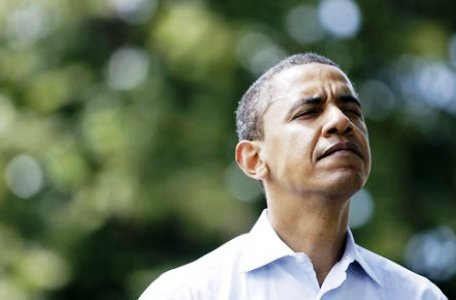The Terror Plot, an Ideological War for Geopolitical Interests

Kayhan Barzegar
The U.S. alleged terror plot against Iran can be viewed as the beginning of an ideological war through the manipulation of the concept of terrorism in order to achieve geopolitical and strategic goals. The main objective of this policy is to force Iran to change its nuclear policy, as well as regional stances in order to maintain the existing power balance in the Middle East. This U.S. policy is likely to backfire because history shows that the perpetuation of ideological wars will bring about an ideological counter-reaction potentially jeopardizing Washington’s geopolitical interests.
The strategy of the war against global terrorism aimed at preserving international and regional security was initiated during George W. Bush’s administration. This strategy stemmed from a Manichean ideological mentality and portrayed itself as a sacred and well-nigh apocalyptic war advocating the absolute victory of the United States and the West in Afghanistan and Iraq. Today, the prolongation of these wars in the region, which will not have either an absolute winner or loser, can be attributed to the ideological resistance of the opponents of the U.S. such as the Taliban.
By accusing Iran of plotting the assassination of the Saudi Ambassador in Washington, the United States is bracketing together Iran and global terrorism, engaging in another ideological war. On the top of Washington’s agenda is a will to impose more ‘stringent’ sanctions against Iran forcing the country to revise its nuclear policy, as well as regional stances. While within the past few years, the United States’ policies concerning Iran’s nuclear program functioned inside a framework of ‘threat against global peace and security’, directed –unsuccessfully- via the UN Security Council channel, Washington has currently come to the conclusion that this low-speed lane has failed to serve its goal of forging a global consensus to enforce tougher sanctions against Iran.
Iran’s nuclear program somehow enjoys a significant level of legitimacy among the global public, an element, which in addition to preserving their own interests, has restricted veto-wielding powers such as Russia and China in following Washington’s policy of pressure and sanction. Meanwhile, the possible failure of the U.S. and its regional allies in taking advantage of the turmoil in Syria would empower Iran’s regional status encouraging Iran to stay on its current nuclear track.
At this juncture, connecting Iran to the issue of global terrorism could be a more efficient and convincing means of creating an international consensus against Iran. Reminiscent of the 9/11 terrorist attacks, the war against terror, holds a high and sensitive position in the eyes of the U.S. and Western publics. This explains the Obama administration’s policy to keep the U.S. troops in Afghanistan up to 2014 mobilizing the American public to support the battle against Al Qaeda and the Taliban.
From the perspective of the Obama administration perhaps focusing on the issue of terrorism in dealing with Iran can potentially expedite the creation of a global consensus against Iran’s nuclear program. Here Russia and China, trying to act as responsible global powers, may show less resistance to such a policy.
The United States has already laid the groundwork for relating the two sensitive issues of “terrorism” and “nuclear threat” by introducing the concept of “nuclear terrorism” as the main threat to the U.S. and global security. In this context, by excluding Iran (and North Korea) on the issue of U.S. nuclear confrontation and deterrence raised in the 2010 Nuclear Posture Review (NPR), the Obama administration attempted to keep the pressure on Iran by connecting the two issues of Iran’s nuclear program and global terrorism.
But Washington's new ideological war in the context of terrorism can trigger Iran’s ideological reaction. The United States’ key objectives in the Middle East have been to preserve the balance of power, guarantee energy security, and acquire further geopolitical interests through dominating the existing political-security trends and confronting ideological movements.
The U.S. ideological threat against Iran could give impetus to anti-American groups and may actually backfire by reinforcing ideological movements such as Hezbollah and Hamas, Iraqi Shia factions, along with the diverse range of forces which participated in the Arab Spring against largely Western-backed authoritarian regimes and encouraging Iran to strengthen its coalition with them in order to confront the common threat. This new situation will surely endanger the U.S. geopolitical interests in the region.
Meanwhile, given that this U.S. terror plot has been raised with the help and cooperation of Saudi Arabia, the regime which recognized the Taliban regime in the 1990s and recently dispatched its military forces to crack down on the pro-democracy protests in Bahrain, fueling the Shia-Sunni enmity in the region, this policy would not have the necessary appeal for the people of the region opposing additional punitive action against Iran. Tougher sanctions against Iran, while avoiding war is the exact point where Washington’s and Riyadh’s interests converge.
Just as George W. Bush’s “Axis of Evil” policy, the Obama administration’s new ideological policy aiming at creating a link between Iran and terrorism will be perceived by Iranians as a “national threat” reinforcing solidarity in the society to resist greater pressures. Also, strong domestic reactions toward the US inside Iran rejecting Iranian links to the terror plot by numerous experts, Iranian academics and intellectuals is a vivid example.
By linking Iran to the issue of terrorism, the Obama administration has started a dangerous game. Further insistence on this policy can increasingly complicate the existing political-security challenges in the region at a time when the U.S. is planning to withdraw its troops from Afghanistan and Iraq. This game can endanger the interests of all parties involved i.e., the U.S., Saudi Arabia and Iran. At the present juncture this is the last thing that the Middle East needs.

